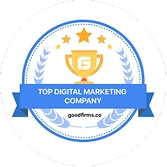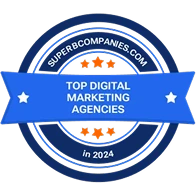
As a professional in the digital marketing landscape, I understand the unique challenges that large businesses face when it comes to enhancing their online presence. In today’s competitive market, having a robust enterprise digital marketing strategy is crucial for driving leads and increasing revenue.
By leveraging various channels such as SEO, PPC, social media, and content marketing, large businesses can effectively implement a comprehensive digital marketing for enterprise approach. This not only enhances their online visibility but also helps in achieving their business goals.
Key Takeaways
- Large businesses need a robust digital marketing strategy to stay competitive.
- A comprehensive approach including SEO, PPC, and social media is essential.
- Effective digital marketing can drive leads and increase revenue.
- Enterprise digital marketing involves multiple channels for maximum reach.
- A well-implemented strategy enhances online presence and business performance.
The Power of Enterprise Digital Marketing
As a seasoned expert in digital marketing, I’ve seen firsthand the transformative power of enterprise digital marketing for large businesses. Enterprise marketing solutions are designed to meet the complex needs of large organizations, with multiple stakeholders, diverse product offerings, and a broader audience reach.
What Sets Enterprise Marketing Apart from SMB Approaches
Enterprise marketing is distinct from small to medium-sized business (SMB) approaches due to its scale and complexity. Large businesses require more sophisticated digital marketing strategies, including enterprise marketing services that can handle multiple brand identities and navigate complex organizational structures.
A key differentiator is the need for b2b digital marketing for enterprises that can effectively target and engage with other businesses. This requires a deep understanding of the target audience and the development of tailored marketing strategies.
| Marketing Aspect | SMB Approach | Enterprise Approach |
| Brand Identity | Single brand identity | Multiple brand identities |
| Organizational Structure | Flat organizational structure | Complex organizational structure |
| Marketing Strategy | Simple, straightforward strategy | Sophisticated, multi-channel strategy |
The Unique Challenges Large Businesses Face in Digital Spaces
Large businesses face unique challenges in digital spaces, including managing multiple brand identities and ensuring consistent messaging across various channels. According to a recent study,
“70% of businesses struggle to maintain a consistent brand image across all marketing channels.”
To overcome these challenges, businesses must adopt a comprehensive digital marketing for enterprises strategy that takes into account their complex needs and multiple stakeholders.
By understanding these challenges and developing effective enterprise marketing solutions, large businesses can drive growth, expand their reach, and achieve their marketing goals.
Assessing Your Current Enterprise Marketing Capabilities
A comprehensive assessment of your enterprise’s digital marketing capabilities is the first step towards optimization. This process involves a thorough examination of your current digital marketing efforts to identify strengths, weaknesses, opportunities, and threats.
Conducting a Comprehensive Digital Marketing Audit
A digital marketing audit is essential for understanding your current online presence and identifying areas for improvement. This audit should include an analysis of your website, social media, content marketing, and paid advertising efforts. By examining these elements, you can gain a clear understanding of your digital marketing landscape.
Key components of a digital marketing audit include:
- Website analysis: evaluating user experience, technical SEO, and content quality
- Social media assessment: examining engagement, content, and advertising efforts
- Content marketing evaluation: assessing content quality, relevance, and distribution
- Paid advertising analysis: reviewing ad performance, targeting, and ROI
Identifying Gaps and Opportunities in Your Strategy
Once the audit is complete, the next step is to identify gaps and opportunities in your digital marketing strategy. This involves analyzing the data collected during the audit and comparing it against industry benchmarks and best practices.
Technical Infrastructure Assessment
Evaluating your technical infrastructure is crucial for ensuring your website and digital platforms are optimized for performance and user experience.
Competitive Positioning Analysis
Understanding your competitive positioning helps in identifying market opportunities and threats, enabling you to develop strategies to stay ahead of competitors.
Internal Resource Evaluation
Assessing your internal resources, including team skills, technology, and budget, is essential for determining your capacity to execute digital marketing strategies effectively.
| Assessment Area | Description | Key Focus |
| Technical Infrastructure | Evaluating website and platform performance | Speed, Security, User Experience |
| Competitive Positioning | Analyzing market standing and competitor strategies | Market Share, Competitor Analysis |
| Internal Resources | Assessing team capabilities, technology, and budget | Skill Gaps, Technology, Budget Allocation |
Building a Data-Driven Enterprise Marketing Strategy
As a seasoned marketer, I can attest that data-driven marketing is the backbone of any successful enterprise marketing strategy. By leveraging data analytics, businesses can make informed decisions, optimize their marketing efforts, and ultimately drive revenue growth.
Establishing Clear KPIs Across Business Units
To build a effective data-driven marketing strategy, it’s essential to establish clear KPIs across different business units. This involves identifying key performance indicators that align with overall business objectives, such as:
- Conversion rates
- Customer acquisition costs
- Return on ad spend
By setting clear KPIs, businesses can ensure that their marketing efforts are focused on achieving specific, measurable goals.
Implementing Cross-Channel Attribution Models
Implementing cross-channel attribution models is critical to understanding the customer journey and optimizing marketing efforts. This involves using data to attribute conversions to specific marketing channels, such as:
- Social media
- Email marketing
- Paid search
By using cross-channel attribution models, businesses can gain a deeper understanding of how different marketing channels interact and impact the customer journey.
Creating Feedback Loops for Continuous Improvement
To ensure continuous improvement, businesses must create feedback loops that allow them to refine their marketing efforts based on data insights. This involves regularly reviewing performance data, identifying areas for improvement, and making data-driven decisions to optimize marketing strategies.
By adopting a data-driven approach to enterprise marketing, businesses can drive growth, improve ROI, and stay competitive in today’s digital landscape.
Read More >>What’s the biggest SEO mistake 90% of owners make when building websites?
Enterprise SEO: Scaling Your Organic Visibility
Scaling organic visibility is a critical challenge for large businesses, and enterprise SEO is the key to overcoming it. As a seasoned digital marketing expert, I understand the complexities involved in optimizing a large business’s online presence.
Technical SEO Frameworks for Complex Websites
Implementing a robust technical SEO framework is crucial for handling complex websites. This involves several key strategies:
Site Architecture Optimization
Optimizing site architecture ensures that search engines can crawl and index your website’s pages efficiently. This involves streamlining your website’s structure and improving internal linking.
International SEO Considerations
For businesses operating globally, international SEO considerations are vital. This includes implementing hreflang tags and optimizing content for different regions and languages.
Enterprise CMS Optimization
Optimizing your Content Management System (CMS) is essential for efficient content creation and management. This involves customizing your CMS for SEO and ensuring it supports your technical SEO framework.
Content Strategy Across Multiple Business Units
A well-planned content strategy is critical for large businesses with multiple business units. This involves coordinating content creation across units and ensuring consistency in messaging and branding.
Managing SEO Teams and External Partners
Effective management of SEO teams and external partners is vital for successful enterprise SEO. This includes setting clear goals and expectations and ensuring collaboration between teams.
By implementing these strategies, large businesses can scale their organic visibility and drive more traffic to their websites.
Mastering Enterprise PPC and Paid Media
To stay ahead in the competitive landscape, businesses must master enterprise PPC and paid media. As a digital marketing expert, I’ve seen firsthand how a well-executed PPC strategy can drive significant ROI for large businesses.
Effective enterprise PPC management involves several key components. One crucial aspect is strategic budget allocation. This involves allocating budgets across different channels and campaigns to maximize ROI.
Strategic Budget Allocation Methodologies
To allocate budgets effectively, businesses can use various methodologies, such as:
- Historical data analysis
- Market trend analysis
- Competitor analysis
By using these methodologies, businesses can make informed decisions about budget allocation and optimize their PPC campaigns.
Advanced Targeting for B2B Enterprise Audiences
Another critical aspect of enterprise PPC management is advanced targeting. This involves using techniques such as:
| Targeting Technique | Description | Benefits |
| Lookalike targeting | Targets users similar to existing customers | Increased conversion rates |
| Custom intent targeting | Targets users based on specific intent signals | Improved ad relevance |
| Account-based targeting | Targets specific accounts and decision-makers | Enhanced B2B engagement |
By leveraging these advanced targeting techniques, businesses can reach their desired audience more effectively.
Cross-Channel Campaign Integration
Cross-channel campaign integration is also vital for a successful enterprise PPC strategy. This involves coordinating campaigns across multiple channels, such as:
“The key to successful cross-channel marketing is to create a seamless customer experience across all touchpoints.” –
Forbes
- Search
- Social
- Display
- Video
By integrating campaigns across these channels, businesses can create a cohesive marketing strategy that drives results.
Scaling Content Marketing for Enterprise Organizations
In the realm of enterprise digital marketing, scaling content marketing is a multifaceted challenge. As organizations grow, their content marketing strategies must adapt to meet the increasing demands of their audience and the complexity of their operations.
Establishing Content Governance and Brand Guidelines
To scale content marketing effectively, enterprises must establish robust content governance and brand guidelines. This involves defining the tone, voice, and style of content across different channels and business units. Consistency is key to maintaining a strong brand identity. By implementing clear guidelines, enterprises can ensure that their content resonates with their target audience and aligns with their overall marketing objectives.
Optimizing Content Production Workflows
Optimizing content production workflows is crucial for scaling content marketing. This involves leveraging technology, such as content management systems (CMS) and marketing automation tools, to streamline content creation, review, and publication processes. Efficient workflows enable enterprises to produce high-quality content at scale, reducing the time and cost associated with content production.
Measuring Content Performance at Scale
Measuring content performance is vital for understanding the impact of content marketing efforts. This involves using attribution modeling, calculating content ROI, and analyzing engagement metrics.
Attribution Modeling
Attribution modeling helps enterprises understand how different content touchpoints contribute to their marketing goals. By assigning value to each touchpoint, businesses can optimize their content strategy for better ROI.
Content ROI Calculation
Calculating content ROI involves comparing the revenue generated by content against its production costs. This metric helps enterprises allocate their content budget more effectively.
Engagement Metrics Analysis
Analyzing engagement metrics, such as likes, shares, and comments, provides insights into how audiences interact with content. This information is crucial for refining content strategies to improve engagement.
As
“Content is the atomic particle of all digital marketing.”
– Jay Baer, enterprises must prioritize content marketing as a core component of their digital strategy. By scaling content marketing effectively, enterprises can drive growth, enhance brand visibility, and foster deeper connections with their audience.
Enterprise Social Media Management and Strategy
Managing social media for large businesses involves more than just posting content; it demands a comprehensive strategy that encompasses multiple brand accounts, divisions, and a keen understanding of the audience.
To effectively manage enterprise social media, it’s crucial to have a coordinated approach. This involves coordinating multiple brand accounts and divisions, ensuring that each entity’s social media presence is consistent with the overall brand image.
Coordinating Multiple Brand Accounts and Divisions
Coordinating multiple brand accounts requires a centralized management system that allows for consistent branding across all divisions. This can be achieved by implementing a robust social media management tool that enables scheduling, monitoring, and analyzing performance across various platforms.
By doing so, businesses can ensure that their social media efforts are aligned with their overall marketing goals, enhancing their online presence and engagement.
Implementing Enterprise-Level Social Listening
Social listening is a critical component of enterprise social media management. It involves monitoring social media conversations about the brand, competitors, and industry-related topics. By leveraging social listening tools, businesses can gain valuable insights into customer preferences, sentiment, and emerging trends.
This information can then be used to inform marketing strategies, improve customer service, and drive business growth.
Developing Employee Advocacy Programs
Employee advocacy programs are an effective way to amplify a brand’s social media presence. By empowering employees to share company content, businesses can expand their reach and build credibility. To develop a successful employee advocacy program, it’s essential to provide employees with engaging content, clear guidelines, and incentives for participation.
By implementing these strategies, enterprise organizations can enhance their social media presence, engage more effectively with their audience, and drive brand awareness.
How I Transform Enterprise Digital Marketing for Large Businesses
My expertise in enterprise digital marketing has allowed me to craft tailored strategies that drive significant growth for large businesses. With a deep understanding of the complex digital landscape, I help enterprises navigate the challenges of online marketing.
My Proven Methodology for Enterprise Marketing Success
My approach to digital marketing for enterprise involves a comprehensive analysis of the business’s current online presence, followed by the development of a customized strategy. This strategy is designed to enhance brand visibility, drive engagement, and ultimately boost conversions.
Case Studies: Measurable Results for Fortune500 Companies
Through my work with various Fortune500 companies, I’ve achieved measurable results in enterprise marketing. These case studies demonstrate the effectiveness of my approach in driving real growth and ROI for large businesses.
The Strategic Partnership Approach
At the heart of my methodology is the strategic partnership approach. This involves working closely with businesses to understand their unique needs and goals.
Collaborative Strategy Development
Together, Whiz marketers develop a comprehensive strategy that aligns with the business’s overall objectives, ensuring a cohesive approach to enterprise marketing solutions.
Knowledge Transfer Processes
An essential part of this partnership is the transfer of knowledge, ensuring that the business is equipped to continue and expand upon the strategies implemented.
Long-term Growth Planning
Finally, Whiz marketers focus on long-term growth planning, creating a roadmap for sustained success in the ever-evolving digital landscape.
By adopting this strategic partnership approach, large businesses can achieve transformative results in their digital marketing efforts, driving growth and staying ahead of the competition.
Conclusion
As we’ve explored throughout this article, enterprise digital marketing is a complex and multifaceted field that demands a comprehensive approach. By understanding the unique challenges faced by large businesses and leveraging strategies such as enterprise SEO, PPC, content marketing, and social media management, businesses can achieve digital marketing excellence.
I have seen firsthand the impact that a well-executed enterprise digital marketing strategy can have on a business. As a professional in this space, I am committed to helping businesses navigate these complexities and achieve their marketing goals through tailored enterprise marketing services.
By partnering with a seasoned digital marketing agency, large businesses can tap into the expertise and resources needed to drive digital marketing success. Whether you’re looking to enhance your online visibility, drive more leads, or boost conversions, a strategic approach to enterprise digital marketing can help you achieve your objectives.
FAQ
What is enterprise digital marketing, and how does it differ from traditional digital marketing?
Enterprise digital marketing refers to the comprehensive approach to digital marketing used by large businesses, involving multiple channels such as SEO, PPC, social media, and content marketing. It differs from traditional digital marketing in its complexity and scale, requiring a more intricate strategy to manage multiple brand identities, navigate complex organizational structures, and ensure consistent messaging.
How do I assess my current enterprise marketing capabilities?
To assess your current enterprise marketing capabilities, I recommend conducting a comprehensive digital marketing audit that examines your technical infrastructure, competitive positioning, and internal resources. This will help identify gaps and opportunities in your strategy, enabling you to develop targeted improvements.
What is the importance of having a data-driven enterprise marketing strategy?
A data-driven approach is critical to the success of enterprise digital marketing, as it enables businesses to track performance, identify areas for improvement, and make informed decisions. By establishing clear KPIs, implementing cross-channel attribution models, and creating feedback loops, businesses can optimize their marketing efforts for maximum ROI.
How can I scale my enterprise SEO efforts for better organic visibility?
To scale your enterprise SEO efforts, I suggest implementing technical SEO frameworks to handle complex websites, optimizing site architecture, and considering international SEO. A well-planned content strategy across multiple business units and effective management of SEO teams and external partners are also vital.
What are the key components of a successful enterprise PPC and paid media strategy?
A successful enterprise PPC and paid media strategy involves strategic budget allocation methodologies, advanced targeting techniques for B2B audiences, and cross-channel campaign integration. By allocating budgets effectively and integrating campaigns across multiple channels, businesses can maximize ROI.
How can I optimize my content marketing efforts for enterprise organizations?
To optimize your content marketing efforts, I recommend establishing content governance and brand guidelines, optimizing content production workflows, and measuring content performance at scale. This involves using attribution modeling, calculating content ROI, and analyzing engagement metrics to understand the impact of content marketing efforts.
What are the best practices for enterprise social media management?
Best practices for enterprise social media management include coordinating multiple brand accounts and divisions, implementing enterprise-level social listening, and developing employee advocacy programs. By leveraging these strategies, businesses can enhance their social media presence, engage with their audience more effectively, and drive brand awareness.
How can I develop a strategic partnership approach for enterprise digital marketing?
To develop a strategic partnership approach, I suggest collaborative strategy development, knowledge transfer processes, and long-term growth planning. This will ensure that businesses achieve sustainable growth in their digital marketing efforts and maximize ROI.
What are the benefits of working with an enterprise digital marketing agency?
Working with an enterprise digital marketing agency can provide businesses with the expertise and resources needed to develop and implement a comprehensive digital marketing strategy. This can lead to improved online presence, increased leads, and ultimately, revenue growth.
How can I measure the success of my enterprise digital marketing efforts?
To measure the success of your enterprise digital marketing efforts, I recommend establishing clear KPIs and tracking performance across multiple channels. This will enable you to identify areas for improvement and make informed decisions to optimize your marketing strategy.





